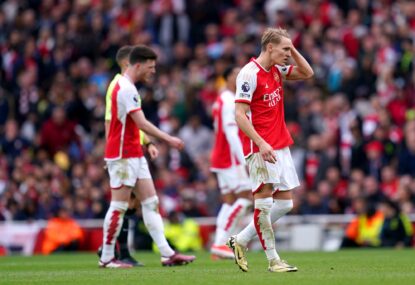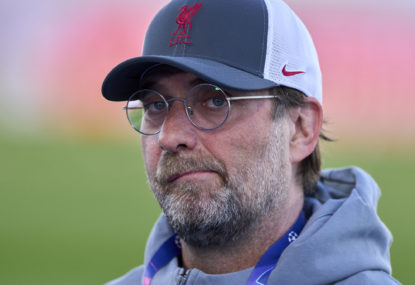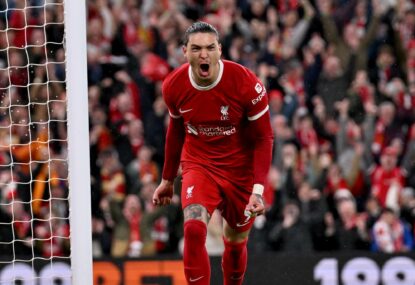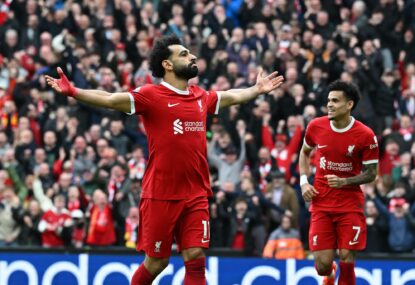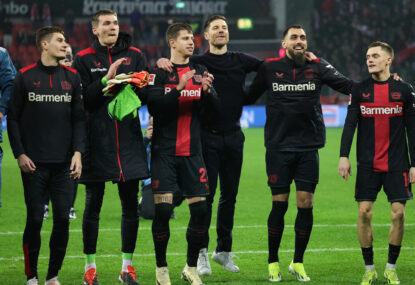As I openly pondered what it would take to put together a bid for ailing Glasgow Rangers with some friends the other day, I was stunned by the laughter ringing in my ears.
My compatriots – wealthy black businessmen and former sportspeople – laughed me out of the room.
My thought process was simple. How often does one of the most iconic sporting brands in Britain become available at a knock-down price?
Fanatical fan-base, packed home crowds, and virtually guaranteed European football. Surely, there’s got to be a way to make that pay for you, hasn’t there?
A good Protestant boy like myself could surely be accepted among the ‘Billy Boys’ – oops, I’m not supposed to use that vernacular anymore to describe the clubs fans. I, too, have to smile at the very thought of being involved in purchasing the club.
Imagining those fanatics that former chairman David Murray once called ‘ninety minute bigots’, to symbolise the despicable sectarianism that has coloured so many Glasgow derbies, seeing the Lone Ranger arrive in the form of a black man.
Sounds almost unbelievable, but it could well be the fate of the club if wealthy Singaporean Billy Ng is successful in getting his hands on what remains a great football brand, despite the current lack of quality in Scottish football.
The ugly face of sectarianism apart, the laughter of my friends left me thinking. Has there already been a seachange within the English game that will ultimately see more people of colour involved in the boardroom?
Lebron James already has a share in the ownership of my club, Liverpool FC. Manchester City’s riches come from His Royal Highness Sheikh Mansour bin Zayed bin Sultan Al Nahyan.
The UAE member of the ruling family of Abu Dhabi is the half brother of the current President of UAE, Emir (ruler) of Abu Dhabi, Khalifa bin Zayed Al Nahyan.
It’s no coincidence that Patrick Viera had a new football development executive role created for him at City, and to all intents and purposes he has become the face of the club off the pitch.
Arsenal’s board also has a very different hue about it. That most aristocratic of canons now has an American in Stan Kronke calling the shots, and Russian oligarch Alisher Usmanov and Iranian-descended Briton Ardavan Farhad Moshiri are heavily involved.
Indian chicken outfit Venky’s control Blackburn Rovers, compatriot Lakshmi Mittal has a sizeable stake in QPR, and Mohamed Al Fayed, that inimitable former intermediary to the Saudi royal family, bought the freehold to Fulham for just £6.25m in the summer of 1997.
It’s not only in the top tier where ownership is changing. Vincent Tan and co are in at Cardiff City, Birmingham FC is the preserve of the troubled Carson Yeung and there are many others, not to mention the steady number of new and existing US-based ownership groups.
And let us not forget one of the first wealthy Middle Eastern investors, Bashar and Amar al Khadi, who took over our very own Macclesfield Town in 2003.
They caught the fever and were strong supporters of my brother when he managed the club before his passing. Without them in control, I’m not convinced Keith would have been back in the League.
These new owners might not be of African descent, but many of them clearly bring a more international perspective. Dare I say, it won’t be long before African billionaires such as Aliko Dangote or Patrice Motsepe get interested in the football money pot.
Strange that there are not more black people on boards when we represent about a quarter of the professional playing ranks. While some boards have women on them, I don’t know of any that currently involve a bona fide black Englishman. I hope I’m wrong but I just can’t think of one football club.
I’m hoping the new breed of ownership sees the benefit in better reflecting a large portion of the current playing staff and the number of fans.
This new breed of owner might help deal with what some call ‘subliminal perception’. The idea of selecting candidates in a conscious or subconscious desire to reflect and resemble past successful people, who have all been white in the British game.
An interesting recent article on why there are not more black football managers by Ellis Cashmore and Jamie Cleland highlighted the desire for boardroom change among fans of the game.
Of the 1,000 football fans, including players and ex-players, of various races, some “56 per cent of respondents believed racism operates at the executive levels of football, i.e. the boardroom.”
While some fans accused club owners and directors of deliberate discrimination, most suspected a form of unwitting or institutional racism in which assumptions about black people’s capacities are not analysed or challenged and so continue to circulate.
Let’s hope, these fans of the game are not right in their assumptions that little will change for people of colour off the field over the next few years.





























































































